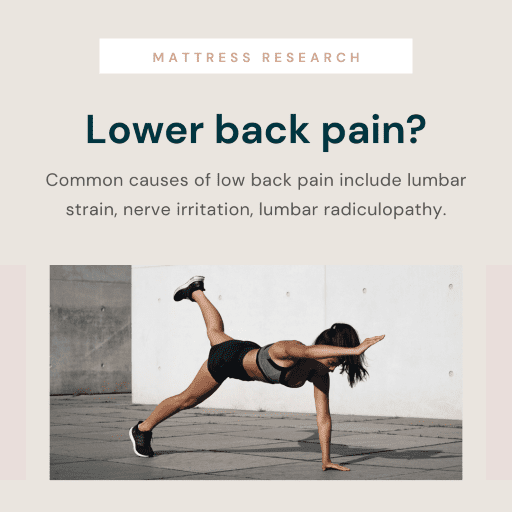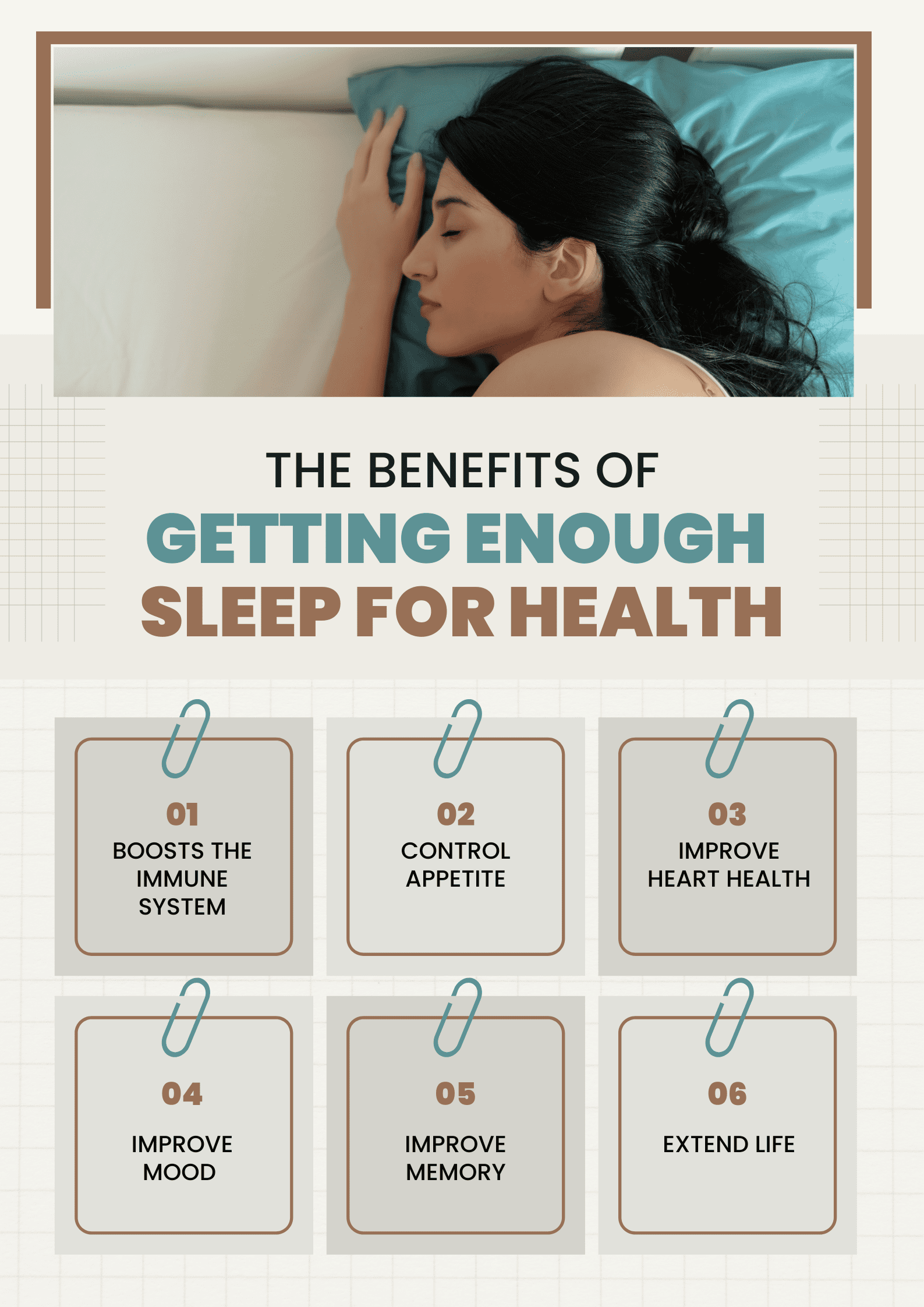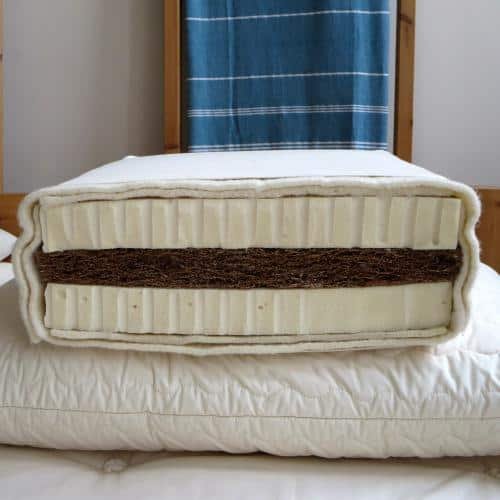How to choose the right mattress for specific health problems
Choosing the right mattress is essential, especially for people with specific health problems. Some health problems can be made worse by sleeping on the wrong mattress, so choosing one that will help, not hinder, your health is essential.
-
If you have back pain, you should choose a firmer mattress
Back pain is the second most common cause of chronic pain, and it can limit your ability to function normally. One of the best ways to ease your aches is by ensuring your spine stays aligned throughout the night. A firm mattress will help keep your spine in neutral alignment while you sleep on your side or stomach and in any other position that puts pressure on your lower back. If you tend to wake up with back pain, switching from an extremely soft mattress to a brand-new firm one could be just what you need for some sweet relief.

-
Anyone with arthritis may want to consider a softer mattress
If you suffer from inflammation in your joints or arthritis, you will want to select a mattress that is softer than average. Arthritis can affect any joint in the body, and its symptoms include pain, tenderness, and stiffness around the affected joints. Arthritis is most common in the knees, hips, and hands. A firmer mattress can put additional pressure on these inflamed areas, which causes even more pain. A softer mattress comforts people with arthritis because it reduces pressure on painful joints.
-
People with neck pain should look for a medium-firm mattress
If you suffer from neck pain, pick a mattress that is medium-firm (or even firm) but not too hard. It should offer support without pushing back. If your mattress is too soft, it will allow your spine to curve and put pressure on the vertebrae in your neck and the discs between them.
A good pillow is important to keep your head aligned with the rest of your body and avoid additional strain on your neck muscles. The best pillows for people with chronic neck pain are firm and support the natural curvature of the spine—your doctor can recommend the best type for you based on an examination of your injury or condition.
-
Those who suffer from migraines may want to try a memory foam mattress
If you suffer from migraines, a memory foam mattress may be the right choice. Research into the effectiveness of memory foam mattresses for those who experience migraines is ongoing. Still, some studies suggest that choosing a memory foam mattress may help reduce the frequency and severity of your migraines. Memory foam mattresses are designed to help improve circulation and to promote better overall sleep. Because good sleep is essential to our overall health, ensuring we get enough good quality sleep each night can be important for our physical and mental health and help us deal with or prevent many health problems.
-
If you have GERD, you should choose a mattress that is on the firmer side
For those who suffer from GERD, a firmer mattress is typically the way to go. While a firmer mattress might not be ideal for everyone, it is much more likely to improve your condition than worsen it. The right mattress will help keep your spine aligned, reducing the likelihood of acid reflux. On mattresses with less support than is necessary, your spine will sink too far into the mattress and cause you increased discomfort and pain. Soft mattresses also tend to create an uneven surface that can result in poor sleep positions and increased acid flow into the oesophagus.
-
Anyone with sleep apnea may want to consider a memory foam mattress
If you have sleep apnea, you may want to consider a memory foam mattress. Sleep apnea is a sleep disorder that causes you to stop breathing for a few seconds during sleep. Memory foam has become popular because its supportive surface helps relieve pressure points and keeps the spine properly aligned, which can help reduce the effects of sleep apnea.
-
If you have allergies, you should choose a hypoallergenic mattress
If you have allergies, you should choose a hypoallergenic mattress. The materials in these mattresses are resistant to dust mites, mould, and mildew. As a result, they are less likely to cause allergic reactions or worsen allergy symptoms. Remember that even if you don’t have allergies and don’t live with anyone who does, these mattresses are often better for general health because of their resistance to dust mites and other allergens that can build up over time.
-
A firm mattress is best for people with restless leg syndrome
If you experience restless leg syndrome, or RLS, you know how difficult it can be to get a good night’s sleep. Restless leg syndrome is a neurological disorder that causes an uncontrollable urge to move your legs, usually accompanied by a tingling sensation in the legs. It is more common among women than men and affects up to 10% of the population. A firm mattress is often a great option to help with this problem. While there’s no cure for RLS, it has been proven that sleeping on firmer mattresses can make the symptoms less severe.
-
Those with herniated discs should choose a medium-firm mattress
If you have a herniated disc, you will want to look for a mattress that supports the spine. This means it should be of medium firmness so as not to let your spine sag too far into the mattress and cause pain. A medium-firm mattress is precisely what it sounds like—not too hard or soft, but somewhere in between. In addition to looking at firmness when choosing a bed, you can also take advantage of special mattresses designed specifically with back issues in mind. When shopping, watch for hybrid foam mattresses or those made with memory foam technology (the NASA kind). These mattresses help maintain proper spinal alignment while sleeping and relieve herniated disc symptoms and other problems caused by misalignment nightmares like sciatica and arthritis.
-
People with fibromyalgia should consider a memory foam mattress
If you’re one of the millions with fibromyalgia, you know how difficult it can be to find a comfortable sleep position. Memory foam may be the answer if you wake up with stiffness and soreness. The pressure-relieving comfort of this material helps reduce pressure points and alleviate discomfort even in sleepers who toss and turn throughout the night. Memory foam also has excellent motion isolation properties so you don’t wake up feeling like your partner is an earthquake or a boulder rolling across your bed.
-
Anyone with multiple sclerosis should try a memory foam mattress
A memory foam mattress is an excellent choice for people with multiple sclerosis. It’s soft, comfortable, durable, and supportive enough to last years. Memory foam mattresses have also been shown to reduce pain and improve sleep quality—two areas of concern for many multiple sclerosis patients.
-
Those with chronic pain should consider a memory foam mattress
If you suffer from chronic pain, choosing a mattress that will give you a good night’s sleep and help relieve some of your aches is essential. Memory foam mattresses conform to the body, providing ideal alignment to keep pressure off susceptible areas. The problem is that most memory foam mattresses are too firm for people with chronic pain, who need softer surfaces that can conform more closely to their bodies. Look for a memory foam mattress with a medium-soft feel that provides enough support without being too hard or irritating. This will allow your spine to remain in proper alignment throughout the night, which can help alleviate many types of chronic pain and reduce morning stiffness and inflammation.
-
If you have a latex allergy, you should choose a mattress that does not contain latex
If you have a latex allergy or someone in your home has a latex allergy, you should choose a mattress that does not contain latex. Latex allergies are severe and can cause health problems ranging from hives to anaphylactic shock. Avoid memory foam mattresses made with plant-based oils if you have a latex allergy. Memory foam mattresses manufactured with synthetic chemicals are the best option for people who have allergies to natural materials like wool or latex.

When choosing a mattress, it is essential to consider your individual needs and preferences. Several mattresses can relieve you if you have a health condition that causes pain or discomfort. Memory foam, hybrid foam, and latex mattresses are all excellent choices for people with back pain, arthritis, fibromyalgia, and other chronic pain conditions. If you have a latex allergy, you should choose a synthetic mattress. And if you are looking for a mattress that will provide support and comfort for years, memory foam or latex is the way to go.



